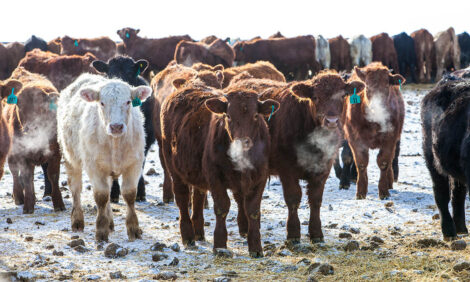



Farmers Need to Exchange Knowledge to Deal with Volatility
ANALYSIS - Benchmarking and knowledge transfer will be two essential tools to help farmers manage their businesses in volatile markets.Giving evidence to the House of Lords EU Energy and Environment Sub-committee hearing on “Responding to price volatility and creating a more resilient agricultural sector”, Sir Peter Kendall, chairman of the Agricultural and Horticultural Development Board, said that there has been a failure to provide farmers with the instruments to help farmers cope with volatility.
He said that the AHDB’s Volatility Forum which is to be launched on 27 January will bring together the academic world, commercial world and farmers to focus on volatility management and build knowledge exchange networks.
However, he said that to ensure that farmers are resilient in such a volatile market it is necessary to concentrate not only on the bad time but also to look at the time when the markets are high.
“We need to make sure it is a long-term piece of work,” he said.
The forum will look at measures such as forward planning, forward pricing and derivatives as well as how government policy can help.
In his evidence Sir Peter called for a greater understanding of the commodity cycle and a greater understanding of risk to be shared with in the farming sector.
He said that farmers did not like the concept of benchmarking and he called for a new way of being able to explain to farmers how they should compare their businesses, both at home and around the world.
He suggested that mandatory price reporting could help farmers understand the markets.
He said that a lot of farmers spend their time just managing the day to day issues of low price and paying the bills but it is important to get them to try to manage the future.
Lord Curry in questioning the witnesses on benchmarking on the farm said that it was an essential tool.
“If you want to encourage resilience, then understanding how you relate to your peers is essential,” he said.
Eirwen Williams, Director, Menter a Busnes, an independent economic development company building support programmes for the farming sector in Wales, said that by forming discussion groups farmers are able to share ideas and benchmark their achievements.
“Getting farmers to engage and benchmark isn’t an easy thing to do, but they see the benefit when they do,” she told the committee.
She stressed the need for programmes for farmers to be able to measure their businesses to manage volatility and she said in this innovation played an important role.
Ms Williams added: “People are not very confident at the moment and you have to develop the individuals so that they can develop their businesses.”
She said that new research and development is need for farmers but the research needs to be translated into something that is relevant for them, rather than “sitting on shelves gathering dust”.
She called for more communication on research and issues of animal health and welfare.
“Farmers have to have to tools to arm themselves against risk,” she said.
Ms Williams added: “we need to be more innovative and come up with new ways to transfer knowledge.”
David Garner, the chief executive of the Royal Agricultural Society of England, said that volatility is here to stay and that farmers need help to get them through the trough.
He said there were two ways for them to look at their businesses – either by building niche production or through the commodity market.
He said that niche production needs to be encouraged as farmers are more protected than in the commodity market, although there is a limit to the size of a niche market.
Those farmers in the commodity markets have to look at the cost of production.
However, he said that benchmarking and knowledge transfer in England are completely dysfunctional.
The sector should be aiming to develop world class businesses that do not haemorrhage money in the low points of a volatile market.
He said that diversification and other income streams would help.
Mr Gardner also called of better coordinated used of research to bring it into best practice for the farming community.
“Other industrialised countries have moved forward further than we have,” he said.
“We are behind the curve.”
Sir Peter added: “We have to link the academic research and what is relevant on the farm.”
The Lords Committee heard that while the young farming community had all the enthusiasm and the knowledge and ability with new technology to work in a volatile market a lack of finance often held them back.



